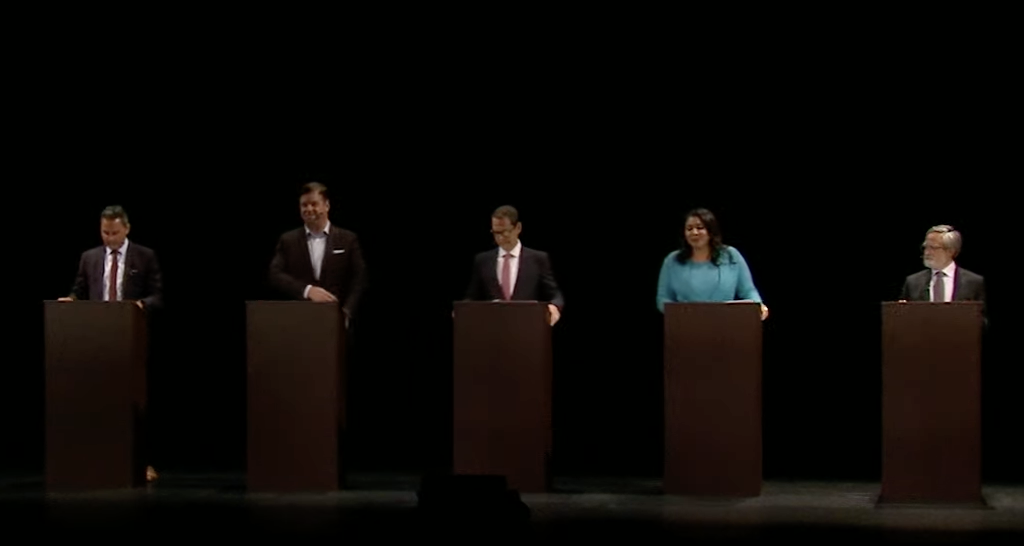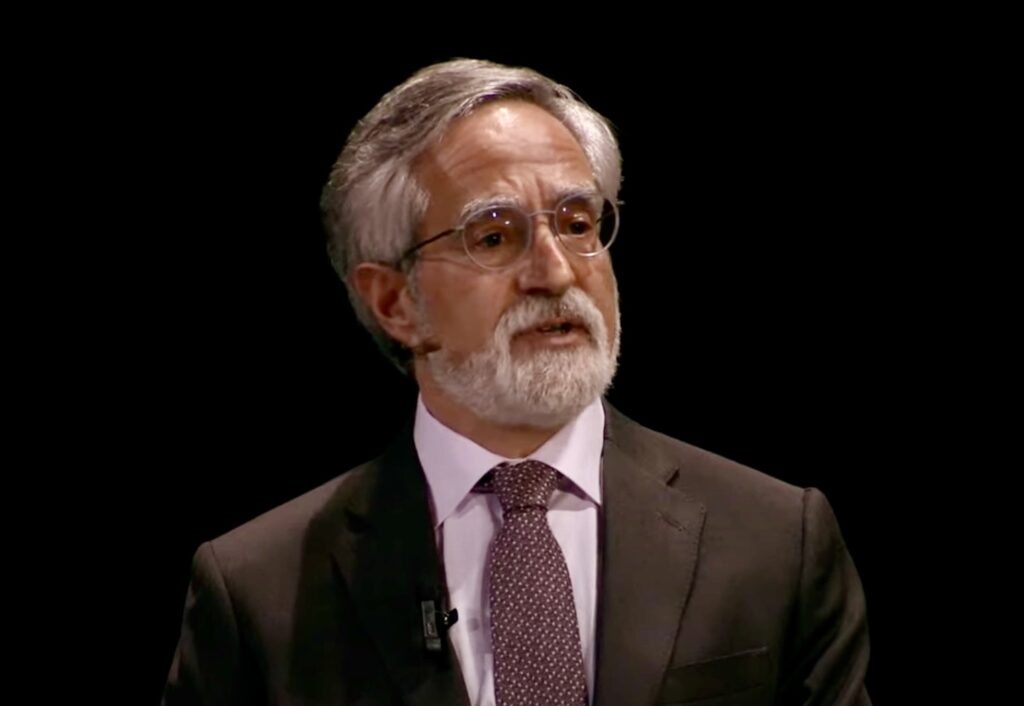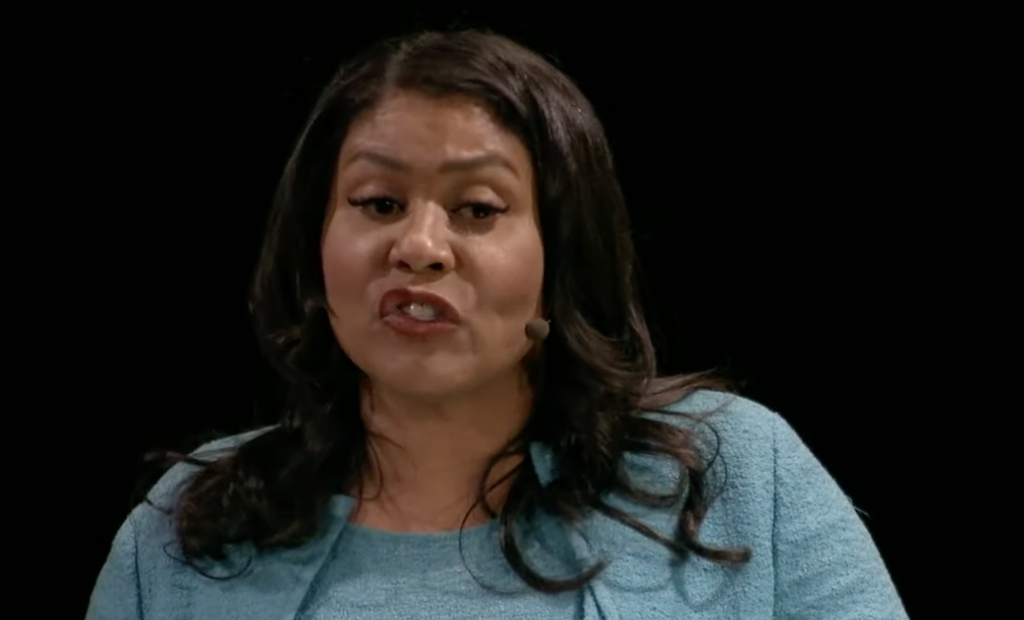>>We need you! Become a 48hills member today so we can continue our incredible local news + culture coverage. Just $20 a month helps sustain us. Join us here.
I have watched, followed, and been involved in mayoral debates in San Francisco since 1987, when I was on the panel of journalists asking Art Agnos and John Molinari questions. I have never been to one where you had to pay money to buy a ticket.
And I’ve never been to, or heard of, any political debate where you had to pay $10 just to watch online.
But that’s what Manny’s and City Arts and Lectures set up, with Manny Yekutiel and NY Times Bureau Chief (and former conservative Chron columnist Heather Knight) moderating.

The candidates got the basic questions in advance, so in many cases they were reading prepared answers. Still, there were some important takeaways.
My overall impression was: Three people are running to the right, one is trying to give voters a sense of who he is—and then there’s Aaron Peskin.
Peskin is the only one who on any issues differentiated himself from the rest of the pack.

In fact, in his closing statement, he was very clear: Mark Farrell, he said, was funded by Bill Oberndorf, a big Trump donor. Mayor Breed has been funded in the past by crypto and tech billionaires. Daniel Lurie is using his own fortune. “I am a grassroots candidate,” he said.
He left Sup. Ahsha Safai out of the picture, but that was part of the theme of the night: Safai was trying to introduce himself to voters who don’t know him, and he wasn’t bad, but he didn’t have a breakout moment.
Breed seemed a little off her game. She’s made her political fortune with feisty, off-the-cuff comments that gave her a personality; at the debate, she seemed defensive and a bit flat. She was on a stage with four guys, three of them white guys, and while she mentioned “guys” a few times, she didn’t really take advantage of the situation.
Instead, she tried to defend her administration’s actions—and not all that well.

Farrell was, as we could expect, as far right as he could go. He talked about how the problems with downtown office vacancies could be solved by “cleaning up the streets so employers will come back.” He suggested another tax break, like the Twitter Tax Break in 2010, which badly screwed the city and has left that area with nothing.
Lurie, sounding a lot like Farrell, said that “people and businesses won’t come downtown until it’s clean and safe.”
Safai suggested bringing more housing and educational facilities downtown, which is an actual plan that makes some sense.
Peskin answered the question about downtown by veering off a bit and saying that the city not only needs to turn downtown into a neighborhood, but needs to protect existing commercial corridors from speculation and displacement. “We should not destroy our neighborhoods,” he said.
That was a pretty direct attack on the mayor’s plan to substantially increase height and density along commercial corridors—a plan that many small business and community advocates say could encourage speculation and lead to the displacement of community-serving businesses.
It’s also a position that could have a lot of traction on the West Side of town, where more conservative voters are really, really opposed to Breed’s upzoning plan.
Peskin also made a point of saying that the city is now arresting hundreds of people not for selling drugs but for simple use, clogging the jails and doing little or nothing to stem the overdose crisis.
Farrell complained about the city’s harm-reduction strategies, saying that “city workers hand out tin foil” to users. San Francisco for decades has distributed clean needles to drug users, a move that almost everyone agrees has slowed infections and saved lives.
Lurie and Breed both talked about “abstinence-based treatment,” which many advocates say doesn’t work.
Again, on homelessness, the three conservatives tacked right. He said that during his brief stint as mayor, “if they said no to shelter we took away their tent.” Lurie said “people should not be allowed to sleep on the streets … we want to send a message to the country that you don’t come to San Francisco to deal drugs and do drugs.” I’m not sure what that has to do with homelessness, but it shows where he is going.
Peskin noted that one of the city’s best tools is the affordable housing measure, Prop. C—”and I’m the only one here who supported it.” In fact, Breed has refused to spend affordable housing money on affordable housing. He also was the only person on the panel speaking about prevention, about the fact that almost 70 percent of the city’s unhoused people used to have a place to live in the city.
Breed, Lurie, and Farrell followed the Yimby line, saying that upzoning and deregulation will help the affordable housing crisis. “We are trying to keep people out, not keep them in,” Breed said.
Peskin said he has “the best record on housing that nobody is aware of.” He voted to approve zoning for more than 100,000 new units—but a lot of them aren’t getting built. The city has 70,000 approved housing units ready to break ground, but in these days of high interest rates, the financing isn’t there. It’s not Nimbyism, it’s capitalism.
In a remarkable statement, Breed said she “had to oversee the biggest” anti-corruption efforts in the city, and that “none of the people you are talking about were people I hired.”
No, she didn’t hire Mohammed Nuru, but they were close friends, he paid to fix her car, and she certainly didn’t do anything to stop what were pretty clearly some corruption activities at City Hall. And she “oversaw” nothing—that was the FBI and the US Attorney’s Office.
At the end, the moderators asked the candidates who their second choice would be, and Breed refused to answer. That’s no surprise—she clearly doesn’t want to do a ranked-choice voting strategy with Lurie or Farrell. Neither of those two mentioned the other, or Breed.
Most of the news stories so far have focused on the trivia (although Joe Fitzgerald Rodriquez had a pretty good take). But there were some real issues on the table, and I think it’s clear where this race is going.
Full disclosure: My son and daughter work on the Peskin for Mayor campaign.





